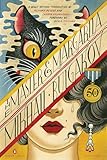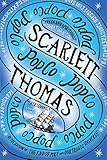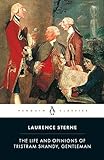
1.
It’s tough being a novelist of ideas these days. Just ask Scarlett Thomas. Her newest novel, The Seed Collectors, is laugh-out-loud funny for pages at a time. As British reviewers noted, it fits securely into the great tradition of the modern British comic novel represented by P.G. Wodehouse, Evelyn Waugh, Muriel Spark, Iris Murdoch, Kingsley Amis, and Terry Pratchett, and offers considerable further satisfactions. The blurbs are from William Gibson and Neil Gaiman. And yet it looked like the book would not even come out in North America until it was picked up by the venturesome but tiny Soft Skull Press. Far worse British novels have been published in the United States and Canada; far worse British novels have won the Booker Prize. So why did the best novel yet from the most ambitious novelist in the United Kingdom almost fail to get published in North America?
 The Seed Collectors is the saga of an extended family the members of which are (un)happy in their own ways; Anna Karenina updated by both Amises. That saga starts with the death of Aunt Oleander. Oleander has bequeathed a mysterious seed pod to each of her Gardener grandnephews and nieces — Clem(atis), an Oscar-nominated documentary filmmaker; Charlie, a botanist at Kew; and Bryony, a part-time real estate broker and graduate student — and to Fleur Meadows, her longtime factotum at Namaste House, her New Agey retreat. It seems that the seed pods, retrieved from a Pacific island by the vanished middle generation of Gardeners, confer enlightenment — but also death.
The Seed Collectors is the saga of an extended family the members of which are (un)happy in their own ways; Anna Karenina updated by both Amises. That saga starts with the death of Aunt Oleander. Oleander has bequeathed a mysterious seed pod to each of her Gardener grandnephews and nieces — Clem(atis), an Oscar-nominated documentary filmmaker; Charlie, a botanist at Kew; and Bryony, a part-time real estate broker and graduate student — and to Fleur Meadows, her longtime factotum at Namaste House, her New Agey retreat. It seems that the seed pods, retrieved from a Pacific island by the vanished middle generation of Gardeners, confer enlightenment — but also death.
 Fleur is the only major character to reach enlightenment; she consumes her seed pod and — shades of The Master and Margarita — finds herself capable of astral flight, able to see all things at once as if she’s become Jorge Luis Borges’s Aleph. For the rest, sex will have to do. “There is quite a lot of sexing in it” — a comment on the journal of one of the vanished pod seekers — applies to the book as a whole. Little wonder that the family tree at the start of the book needs to be revised by the end.
Fleur is the only major character to reach enlightenment; she consumes her seed pod and — shades of The Master and Margarita — finds herself capable of astral flight, able to see all things at once as if she’s become Jorge Luis Borges’s Aleph. For the rest, sex will have to do. “There is quite a lot of sexing in it” — a comment on the journal of one of the vanished pod seekers — applies to the book as a whole. Little wonder that the family tree at the start of the book needs to be revised by the end.
The Seed Collectors is a departure for Thomas. Her three most recent novels, PopCo (2004), The End of Mr. Y (2006), and Our Tragic Universe (2010), were first-person narratives about young, unattached women on knowledge quests, all told with humor and inventiveness, but broadly similar. In The Seed Collectors she widens her canvas to encompass at least seven major characters including a child and a bird, a gallery that showcases her mastery of “free indirect style.” Consider the Namaste House pet robin, Thomas’s tribute to Levin’s dog in Anna Karenina, who thinks — don’t all robins? — in a quasi-medieval dialect:
Through the bedroom window he can see that Fleur is nesting, Fleur often nests. But she never lays any eggs. That man in her nest has made it yblent. Did he make Fleur put out the firedangerfish? Did he eat the other macarons? Did he make her cry out in the night, as she so often does now?


 But Thomas’s real comic masterpiece is Bryony. Thomas has never written a character remotely like her before. Surrounded by the ascetically inclined, Bryony is all id and no superego: fat, spendthrift, alcoholic, shopaholic, able to resist anything except temptation, and dedicated to ludicrously self-defeating schemes for self-improvement. She is all these things, and she is magnificent. Her 15-page rampage through Selfridge’s onto Oxford Street and the train home (starting with extreme shopping, escalating through way too much wine, eating the children’s candy, inappropriate flirting with hooligans, and ending with toilet masturbation — yes, there’s a lot of sexing in this book) is the novel’s tour de force; her progress from one appalling yet hilarious act to the next is a high-wire act on Thomas’s part, requiring a virtuosic command of tone and structure. If there is anyone in greater need of enlightenment yet less susceptible to it, they are not to be found in this book:
But Thomas’s real comic masterpiece is Bryony. Thomas has never written a character remotely like her before. Surrounded by the ascetically inclined, Bryony is all id and no superego: fat, spendthrift, alcoholic, shopaholic, able to resist anything except temptation, and dedicated to ludicrously self-defeating schemes for self-improvement. She is all these things, and she is magnificent. Her 15-page rampage through Selfridge’s onto Oxford Street and the train home (starting with extreme shopping, escalating through way too much wine, eating the children’s candy, inappropriate flirting with hooligans, and ending with toilet masturbation — yes, there’s a lot of sexing in this book) is the novel’s tour de force; her progress from one appalling yet hilarious act to the next is a high-wire act on Thomas’s part, requiring a virtuosic command of tone and structure. If there is anyone in greater need of enlightenment yet less susceptible to it, they are not to be found in this book:
There are 165 calories in this glass of wine, but Bryony won’t log it in her food diary later because it isn’t very nice and she didn’t really mean to have it. When she gets home she’ll have 250mls of Chablis and she’ll log that instead…Fuck it. She just won’t fill in her food diary at all today. She’ll start afresh tomorrow. That means she can drink all the Chablis when she gets home.
More important, Bryony does monstrous things to her family out of self-absorption (pulling her daughter Holly from tennis camp out of pique, choosing wine over her husband, James, when he gives her a foolish ultimatum), No wonder Holly develops an eating disorder. No wonder James pours a kettle of boiling water over his head. But, but …We’ve all reached for that last glass of wine or Twinkie while saying to ourselves “I’ll start cutting down tomorrow.” Bryony is no different, except that she takes self-indulgence beyond comedy into the realm of menace to those closest to her. We may laugh at her or we may cringe, but she’s never uninteresting.
2.


 Why did it take this book almost a year to find a publisher? I believe that a combination of industry-specific reasons and more significant cultural attitudes are to blame. The state of American publishing is a problem for any writer without a preexisting mass following. Certainly with the death of the mid-list, an idiosyncratic British writer can expect trouble with American audiences (though Paul Murray’s similar The Mark and the Void at least got published in the United States—and reviewed, with an interview, in The Millions). And in a tweet on June 29, 2015, Thomas summarized some of the reasons publishers gave for rejecting the novel: “Too weird, British, far too much sex, ‘unlikeable’ characters who drink too much…” We can only take Thomas at her word here, but “too weird, British, far too much sex, ‘unlikeable’ characters who drink too much” could once have been part of a rave reader’s report on, say, Money, or (“British” apart) Gary Shteyngart’s Absurdistan. It’s impossible not to notice that these are books by male authors centered on powerful male voices. Would Thomas have had less trouble if she were male and her main character had been Bryan rather than Bryony? I’m inclined to think not in this particular case; Thomas doesn’t mention the issue, and her defiance of literary convention is extreme enough to make an American publisher nervous. (This issue deserves a full discussion, which might begin by noting that Bridget Jones is a less extreme version of Bryony in many ways, but her self-deprecating first-person voice and the Jane Austen–derived structure of Bridget Jones’s Diary, promising a happy ending, ensure that Bridget is reader friendly. Thus, a very different woman writer achieved worldwide success with a fairly similar female character; there are lessons here.)
Why did it take this book almost a year to find a publisher? I believe that a combination of industry-specific reasons and more significant cultural attitudes are to blame. The state of American publishing is a problem for any writer without a preexisting mass following. Certainly with the death of the mid-list, an idiosyncratic British writer can expect trouble with American audiences (though Paul Murray’s similar The Mark and the Void at least got published in the United States—and reviewed, with an interview, in The Millions). And in a tweet on June 29, 2015, Thomas summarized some of the reasons publishers gave for rejecting the novel: “Too weird, British, far too much sex, ‘unlikeable’ characters who drink too much…” We can only take Thomas at her word here, but “too weird, British, far too much sex, ‘unlikeable’ characters who drink too much” could once have been part of a rave reader’s report on, say, Money, or (“British” apart) Gary Shteyngart’s Absurdistan. It’s impossible not to notice that these are books by male authors centered on powerful male voices. Would Thomas have had less trouble if she were male and her main character had been Bryan rather than Bryony? I’m inclined to think not in this particular case; Thomas doesn’t mention the issue, and her defiance of literary convention is extreme enough to make an American publisher nervous. (This issue deserves a full discussion, which might begin by noting that Bridget Jones is a less extreme version of Bryony in many ways, but her self-deprecating first-person voice and the Jane Austen–derived structure of Bridget Jones’s Diary, promising a happy ending, ensure that Bridget is reader friendly. Thus, a very different woman writer achieved worldwide success with a fairly similar female character; there are lessons here.)
In fact, Thomas’s unconventionality, perhaps her greatest literary virtue, has paradoxically diminished her appeal to some of the very readers who should love her. Readers seem to have particular trouble getting their heads around her notion of the “storyless story” (as a character in Our Tragic Universe calls it, “a vagina with teeth”). For example, in a piece ostensibly arguing for the publication of The Seed Collectors, Laura Miller opined that the book’s difficulty in finding a U.S. publisher was largely due to the failure of Our Tragic Universe to engage Miller and her friends as much as its predecessor, The End of Mr Y. (The friends’ opinion: “Nothing happened.”) Where Mr Y was a science-fiction thriller that featured a lengthy chase through a Victorian, computerless cyberspace, Our Tragic Universe deals with a young writer of sharecropped science fiction (think the Star Trek series) living her coincidence-inflected life on the Devonshire coast. It is, Miller complains, “a book about stories that tries mightily to avoid telling a story,” one that “deliberately avoids introducing the sort of mechanical crises, complications, and adventures that would make the proceedings more conventionally exciting.” A succinct statement of the idea of the storyless story; but it’s hard, Miller concludes, “to see why masses of people would want to read it.”
 Although this is exactly the kind of book I want to read, Miller seems to align herself with Jonathan Franzen’s statement that “fiction is storytelling, and our reality arguably consists of the stories we tell about ourselves.” But Franzen’s assumption is optional, and Thomas’s signature strength as a novelist is showing how. From her early novel Going Out — where the young protagonist Julie observes, “In real life nothing means anything. Stuff just happens and there is no structure…Not all events are stories.” — she has acknowledged that “stories give events meaning” (as Luke, the other protagonist of Going Out, responds) while battling the distortion of meaning that results from formula, cliché, and convention.
Although this is exactly the kind of book I want to read, Miller seems to align herself with Jonathan Franzen’s statement that “fiction is storytelling, and our reality arguably consists of the stories we tell about ourselves.” But Franzen’s assumption is optional, and Thomas’s signature strength as a novelist is showing how. From her early novel Going Out — where the young protagonist Julie observes, “In real life nothing means anything. Stuff just happens and there is no structure…Not all events are stories.” — she has acknowledged that “stories give events meaning” (as Luke, the other protagonist of Going Out, responds) while battling the distortion of meaning that results from formula, cliché, and convention.
Meg in Our Tragic Universe is depressed that her own writing is the equivalent of “flat-pack furniture,” screwing pieces together according to a recipe “in exactly the way anyone would expect.” The storyless story is a protean concept in Thomas’s hands, but the reader will find Our Tragic Universe much more tractable if it is defined as the rejection of the flat pack: non-IKEA writing.
The Seed Collectors may appear less storyless — it has a beginning, middle, and end, and teems with stories the way a forest teems with trees — but look closer. Along with conventional stretches in “free indirect style,” the book contains voiceless elements such as lists and elements the voice of which comes from nowhere, such as a series of metaphysical puzzles for the reader akin to koans. At least one of the lists is Charlie’s and at least one of the puzzles is Fleur’s, but neither can be the narrator, because so much happens that they could not know. The Seed Collectors may not have an identifiable narrator, confirming Edward Champion’s insightful suggestion that “the novel, which we have believed all along to be thoroughly structured, has perhaps been a lifelike unstructured mess all along.” If so, the plot itself would mirror one of the book’s principal themes, the exuberant unstructured living mess that is nature, specifically the plant world. Whatever else it is, The Seed Collectors is not flat-pack writing, and is all the more exciting for it.
3.
 Somewhere James Wood claims that “broadly speaking, there are two great currents in the novel: one flows from [Samuel] Richardson and the other from [Henry] Fielding.” Among many other inadequacies, this distinction ignores the current that flows from Laurence Sterne, the patron saint of non-IKEA writing. Tristram Shandy is more than the fount of postmodernism and metafiction. By using these techniques, Sterne reminds us that fictions are made out of words and therefore rejects a crude Richardsonian realism. Sterneans are above all playful; at the same time, they create characters readers can care about: Tristram Shandy, Leopold Bloom, Bryony Croft. As a Sternean, Thomas is more interested in rubbing words and ideas together and seeing what sparks they throw off than in telling stories that reinforce what we already think and end happily for likeable characters.
Somewhere James Wood claims that “broadly speaking, there are two great currents in the novel: one flows from [Samuel] Richardson and the other from [Henry] Fielding.” Among many other inadequacies, this distinction ignores the current that flows from Laurence Sterne, the patron saint of non-IKEA writing. Tristram Shandy is more than the fount of postmodernism and metafiction. By using these techniques, Sterne reminds us that fictions are made out of words and therefore rejects a crude Richardsonian realism. Sterneans are above all playful; at the same time, they create characters readers can care about: Tristram Shandy, Leopold Bloom, Bryony Croft. As a Sternean, Thomas is more interested in rubbing words and ideas together and seeing what sparks they throw off than in telling stories that reinforce what we already think and end happily for likeable characters.
Not so long ago, a novel like The Seed Collectors would have been enthusiastically received in North America. What is a writer like Thomas to do in the Age of Franzen? Kudos to Soft Skull Press for the courage to bring out The Seed Collectors — but such a small press, however estimable, just doesn’t have the resources to ensure mainstream success. Thomas may have to resign herself to cult status on these shores.
But at least The Seed Collectors is finally available in the United States and Canada; you can judge for yourself. And if you don’t like sophisticated work that makes us laugh and think at the same time? There’s always Purity.








